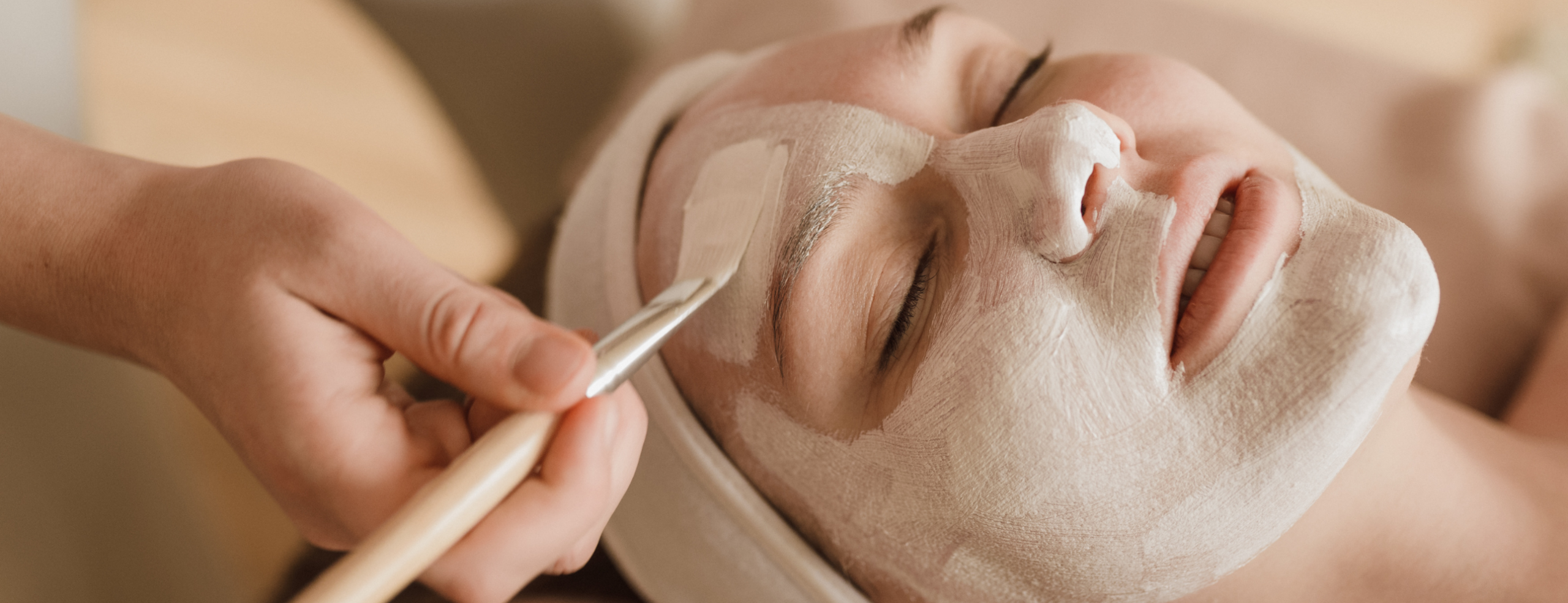Facial Treatments

What is a Facial Treatment?
A professional facial is like a mini vacation for your face—with benefits that go way beyond relaxation. At its simplest, a facial is a hands-on skincare treatment performed by a trained esthetician that typically includes cleansing, exfoliation, steam, massage, mask application, and moisturizing. Think of it as a reset button for your skin. Facials have been around in some form for centuries—ancient Greeks used milk and honey, Egyptians swore by clay and oils, and somewhere along the line cucumbers got a PR agent and landed on spa menus everywhere. These days, professional facials combine time-tested techniques with modern products to help with everything from clogged pores and dullness to dehydration and stress.
Aside from the obvious perks of glowing skin and feeling like a pampered potato, facials can boost circulation, support lymphatic drainage, unclog pores, and enhance product absorption. Translation: that expensive serum you impulse-bought at 2 a.m. might actually work better after a facial. Plus, the calming touch of a skilled esthetician can lower stress levels, ease jaw tension, and soothe the nervous system—especially helpful if your face has been furrowing its brow over spreadsheets or small children.
But before you go scheduling a dermaplaning session or dreaming of microneedled perfection, know this: not all facial treatments are available in every state. In the U.S., esthetician licensing laws vary widely. Some states let licensed estheticians perform advanced services like dermaplaning or microneedling with proper training; others say, “Nope, that’s medical,” and restrict it to doctors or medical professionals. It’s a patchwork system that can be confusing even for those in the field. So when in doubt, ask your esthetician what they’re licensed (and legally allowed) to do in your state. Your face deserves the best—and the safest—hands.
Within the scope
Licensed Estheticians can perform the following services and help with the following conditions. Items with an asterisk (*) require additional training beyond a basic esthetician's license, and some may only be legally performed in certain states.
-
Hormonal Acne
-
Anti-aging
-
Clogged Pores
-
Oily or Dry Skin
-
Discoloraion/Melasma/Uneven Skin Tone
-
Superficial Chemical Peels
-
*Microneedling
-
*Dermaplaning
Out of scope
While estheticians are skin care specialists, they are not dermatologists, and there are many skin conditions/concerns and treatments or services that only a dermatologist can help with or provide.
-
Skin Cancer
-
Psoriasis
-
Deep Chemical Peels
-
Severe Acne
-
Botox and other injectables

